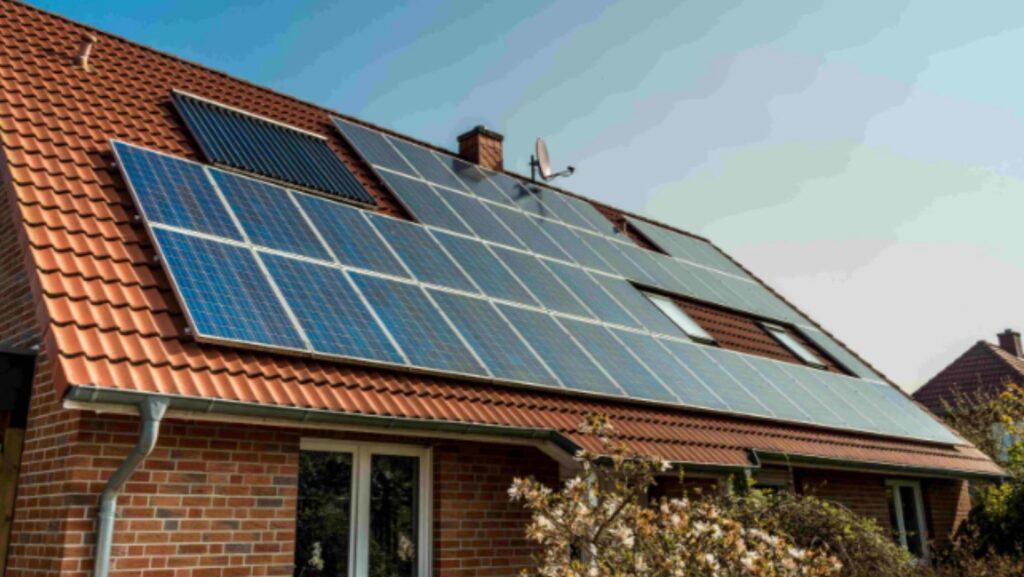
Solar panels are becoming more popular with homeowners looking to reduce their energy bills. One of the key reasons for this rise is the potential savings solar power can offer over time. Many are curious to know exactly how much they can save by installing solar panels. Understanding the factors involved can help make an informed decision. This guide will explore these savings in detail, breaking down what to expect and how different elements impact your overall costs and benefits.
How Do Solar Panels Work?
Before diving into savings, it’s essential to understand how solar panels work. Solar panels capture sunlight and convert it into electricity. This electricity is then used to power your home. Any extra electricity generated can either be stored in a battery or sent back to the grid. When sending power back to the grid, many homeowners are compensated through a process called net metering. This reduces the amount of electricity you need to purchase from your utility company.
Solar panels work best in areas with abundant sunlight, but even in regions with less sun, they can still generate significant savings. This makes them a viable option in various climates.
Initial Costs and Long-Term Savings
One of the biggest questions is about the initial cost of solar panel installation. On average, a residential solar panel system can range between USD$10,000 and USD$25,000, depending on the size of the system and local labor costs. Although this can seem like a large expense upfront, it’s important to look at the long-term savings solar panels provide.
Once installed, solar panels start saving you money by lowering your monthly energy bills. For many homeowners, these savings can add up to thousands over the lifespan of the system, typically 25-30 years. The exact amount will depend on your location, electricity usage, and the size of the solar system you install.
How Much Can You Expect to Save?
The amount you save on electricity depends on a few key factors:
- Your electricity rates: The higher your current electricity costs, the more you stand to save. Solar panels can significantly offset or even eliminate your monthly electricity bill.
- Your solar energy production: This depends on the amount of sunlight your home receives, which is influenced by location, the angle of your roof, and weather patterns.
- Incentives and tax credits: Many governments offer tax credits or incentives for installing solar panels, which can help reduce the overall cost. For example, in the U.S., the federal solar tax credit allows homeowners to deduct a portion of their installation costs from their federal taxes.

For a home with moderate energy consumption, solar panels can save an average of USD$100 to USD$200 per month on energy bills. Over 20 years, this can translate into savings of USD$20,000 to USD$40,000 or more.
Net Metering: A Boost to Your Savings
Net metering is a system that allows homeowners to sell excess electricity generated by their solar panels back to the grid. This system ensures that you are credited for any energy you don’t use. On sunny days, if your solar panels produce more electricity than your home consumes, the extra energy flows back to the grid, and you receive credit. This credit can be used to offset your energy costs during times when your panels aren’t producing enough electricity, like at night or on cloudy days.
This system can boost your savings even further by reducing your reliance on the grid and lowering your overall electricity costs. However, net metering policies vary by region, so it’s important to check with your local utility provider.
Factors Affecting Solar Panel Savings
Several factors influence how much you save with solar panels. These include:
- Geographical location: Homes in sunnier areas, such as California or Arizona, will naturally generate more solar energy compared to homes in cloudier regions. For example, Irvine solar energy solutions are becoming increasingly popular due to the city’s abundant sunlight and local incentives that make installation more cost-effective. Homeowners in Irvine can take advantage of year-round sunshine to maximize their energy production and savings.
- System size: Larger solar systems generate more electricity and can, therefore, lead to greater savings. However, they also come with higher upfront costs.
- Energy consumption: Homes that use more electricity will see bigger reductions in their bills, as a higher percentage of their energy needs are met by solar power.
- Roof conditions: The orientation and tilt of your roof, along with any shading from trees or nearby buildings, can affect how much sunlight your panels receive. Ideal conditions maximize savings.

Ultimately, each of these factors plays a key role in determining your solar savings. By understanding them—and by using tools like Solar Design Software—you can better estimate the financial benefits and make informed decisions about whether solar panels are the right choice for your home.
Is Solar Right For You?
While solar panels offer great savings for many homeowners, they aren’t the best solution for everyone. It’s important to evaluate your individual situation before making the investment. Homes that don’t receive much sunlight or are heavily shaded may not generate enough energy to justify the cost. Similarly, if your electricity bills are already low, the solar panel savings may not be as substantial.
A good rule of thumb is to look at how much sunlight your home gets and calculate the potential solar energy savings based on your current electricity usage. Consulting with a solar provider can help determine if solar panels are a wise investment for your home.
Conclusion
Solar panels can offer significant savings for homeowners, both in the short term through government incentives and in the long term through reduced electricity bills. By understanding how solar panels work and evaluating your specific energy needs, you can determine whether they are the right choice for your home. With the right setup, solar power can not only save you money but also contribute to a more sustainable future.












